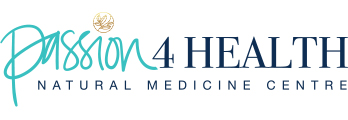How I Treat Autoimmune Hypothyroidism
I’ve written previously about the nutritional factors that can impact energy production and our energy levels. Sometimes though, there are other factors beyond purely dietary factors, that may be impacting your energy levels. For many people, feelings of constant fatigue may also be related to hormonal problems, particularly with the thyroid. One of the more common thyroid conditions is an under-active thyroid, a condition often referred to as hypothyroidism.
In my clinic I frequently see hypothyroidism triggered by autoimmune disease. The most common form of autoimmune hypothyroidism is known as Hashimoto’s Thyroiditis.
What is the Thyroid and What Does it Do?
The thyroid gland is a small, butterfly shaped gland that has one “wing” on either side of the larynx or throat. It is responsible for the production and release of two very important hormones, thyroxine (T4) and triiodothyronine (T3). Along with many other actions, these two thyroid hormones are closely involved in metabolism and subsequent energy release through regulating some aspects of the production of ATP. ATP is best thought of as the cellular currency of energy.
In hypothyroidism, the amount of T3 and T4 released by the thyroid gland is reduced. This can be due to a number of reasons including:
- an auto immune response attacking the bodies own thyroid gland;
- resistance to thyroid stimulating hormone, a hormone that tells the thyroid to secrete more T3 / T4;
- lack of raw mineral resources to allow the thyroid gland to manufacture T3 / T4;
How is Autoimmune Hypothyroidism Diagnosed?
There are a number of tests commonly used in diagnosis of an under-active thyroid. Medically, a number of blood tests are available that are applicable to thyroid problems. Probably the most important, and accurate test, that can be done is a reverse T3 test. This provides a ratio between the active and inactive levels of T3 thyroid hormone. I also recommend patients with possible thyroid problems test their thyroid stimulating hormone (TSH), T3, T4, and thyroid antibodies.
It is important to specify to your GP that that these are the tests you would like done. Quite often doctors will only order a TSH blood test. This test checks for serum levels of thyroid stimulating hormone (TSH). While this does provide a definitive diagnosis of an under active thyroid, medically, this requires a result of 4.0mcIU/mL or higher, while I, like many natural and alternative practitioners believe this is too high, and that in fact, anything over 2.0, is a better indication of an under-active thyroid.
I have Autoimmune Hypothyroidism What Can I Do?
While health concerns like hypothyroidism may seem daunting, In my clinical experience, improving nutrient deficiencies has been exceptionally effective in resolving this condition, and, I have seen great results in clinic.
The most common nutrient deficiency is iodine, followed by magnesium, vitamin D, selenium and zinc.
Stress management is also important as stress worsens inflammation and nutrient deficiencies.
Ensure there is an Iodine balance
The first step is to check for iodine deficiency. Iodine deficiency is becoming an increasing problem in Australia, with the majority of Australians being considered Iodine deficient. This is a disturbing trend which has the potential to impact both current Australians and future generations. Low maternal levels of Iodine during conception, pregnancy and lactation have been consistently linked with lower child IQ.
Iodine represents the raw materials for the construction and manufacture of thyroid hormones. The T3 and T4 designation of triiodothyronine and thyroxine refer to the number of Iodine molecules used in their manufacture. Insufficient iodine means that the levels of T3 and T4 will be reduced and the levels of TSH elevated.
Good dietary sources of iodine include fish, sea food, sea vegetables such as dulse, eggs and cheese. Land vegetables such as spinach, broccoli, mushrooms and potatoes may also contain Iodine, though this is largely dependent on the soils in which these vegetables are grown. Considering the largely mineral deficient nature of Australian soils and the risks of mercury in seafood, Iodine supplementation may be highly beneficial for many.
I use the Oligoscan Heavy Metal and Mineral Analysis to provide real time, in-clinic testing of iodine levels.
Reduce Iodine Competition
The second step in combatting hypothyroidism is to remove or eliminate those substances that may compete with Iodine, or prevent the absorption of Iodine. Iodine unfortunately has a large number of competitors, that those trying to boost thyroid function are best avoiding. Some common sources of competition to Iodine include:
- Soy;
- Flax seeds;
- Raw cruciferous vegetables (broccoli, brussels sprouts, cauliflower, and cabbage);
Other, non food based competitors to Iodine, that can be a little harder to eliminate include:
- Chlorine and Fluoride from the water supply;
- Some pharmaceutical medications including some cholesterol lowering drugs and anti depressants;
- Some household products and cleaning products;
Book a Consultation
While combating autoimmune hypothyroidism is quite straight forward, it is important to consult with a qualified Naturopath. Increasing iodine intake often results in a rapid, and very thorough detoxification. This needs to be monitored closely to ensure iodine levels remain balanced and don’t become excessive.
Our approach to autoimmune hypothyroidism involves an thorough case history and testing. For more information visit our services page.
